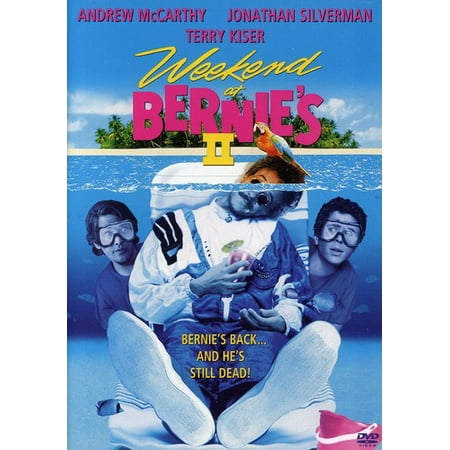WATCHMEN the show is not WATCHMEN the book. That should be obvious, and in a sense it is
what I wanted. A sequel coming 34 years
after the original, in a different medium, should have an identity of its
own. The show certainly carved out its
own identity and take on the characters and mythos, and it served up a generally
fitting conclusion for the story it told on its own terms. But while as a whole, it stands as an
incredible achievement and one of the most interesting series of the decade, I can’t
help feeling that the last three episodes were not as strong as those preceding, that some key characters are dumbed down from their literary counterparts
in order to fit this narrative, and that the main thing I found so compelling
about the book did not fully make the translation to the screen.
That thing, as I mentioned in the premiere recap, was the
sense of polyphony. That the original
comic presented various wildly divergent perspectives with authenticity, but
did not tell the reader definitively which was correct and which were
wrong. The show made some efforts in
this area, with the best episodes hewing more or less exclusively to Laurie,
Wade and William’s point of view. But in
the end, it reveals itself to be the story of Angela Abar first and foremost,
and sides with her in a way that the original does not with any of its POV
characters.
It also, in reframing itself as a tragic love story between
her and Jon, loses track of some of the more interesting thematic threads about masks and vigilantism and policing from the early episodes. Those
earthbound elements are subsumed as story becomes all about loving, killing, or
usurping a godhead. Which is a shame,
because the finale still managed to toss off some final thoughts on the effects
of masks that I think are worthy corollaries of the comics’ themes – that they
make men cruel, that they prevent true healing from taking place, etc. I would
have liked to have seen those ideas explored more, but it already seemed like
Sister Night and Looking Glass had given up on their masked personas halfway through
the season anyway, and Ozymandias and Trieu and Blake never wore masks at
all. I suppose that when Angela sits
down with Grandpa at the end, she probably does have some lingering issues
about the effects of wearing a mask to work at a job I don’t think she actually
has anymore, but what are those issues compared to all the baggage that comes
with having married, lobotomized, resurrected and indirectly killed a god? I’d say they are pretty small potatoes,
especially if we are to use the show’s allocation of screentime over the last
three weeks as a metric.
| And whither Lube Man, show? WHITHER, goddamnit??? |
I do feel like I have been rather negative these last few
weeks, and I want to stress that I did enjoy and recommend the show all the
way through the end. But looking around
the internet, there seems to be no shortage of rapturous reviews proclaiming
this the work of the century, so rather than add to that pile I am going to
drill in more on some elements that did not sit right with me. This may be churlish, and it may just be that
the original is such a singular work that following it up “properly” is
essentially impossible. Dr. Manhattan
and Ozymandias were uniquely brilliant creations on the page, but on the show,
particularly in the finale where Jon spends the entire time in a kryptonite
cage with rotating parties trying to steal his power, it often felt like they
had been reduced to essentially just being Superman and Lex Luthor. And while Manhattan and Ozymandias were
always partly inspired by those characters, they were not just that.
To rehash some of my gripes about Irons’ comedic take on the
character, my theory is that writing a supergenius character like Ozymandias is
one of the most difficult tasks in all of fiction, as it basically requires a real-life supergenius to really pull it off.
And those are in vanishingly short supply. I don’t mean it as a diss to say that
Lindelof isn’t in that league, it’s not something that the vast majority of my
favorite creators have a special knack for, or something I consider necessary
to be a master storyteller (plenty folks, from George Lucas to JRR Tolkien to Vince
Gilligan to Ridley Scott to James Cameron to Steven Spielberg, have produced
masterpieces without relying on this very precise ability). Top of mind,
the only people I’d really trust to do this particular thing besides Alan Moore
would be David Milch, Charlie Kaufmann…maybe the Coens or Alex Garland? But anyway,
what tends to happen when someone who is not a legit supergenius tries to write
a character significantly smarter than themselves is that they substitute
smugness for actual intelligence, and the character becomes less a mastermind
than a smartypants. Someone who can
invent whatever machine the plot needs to keep chugging along, but is so
lacking in common sense that the more simpleminded hero can stumble their
way into short-circuiting their master plan with some homespun hokum. Their intelligence is expressed through access
to advanced technology or simple plot clairvoyance (in the case of the “he got
captured on purpose!” trope) rather than any sort of actually intelligent
thought or action (such as the mass media dissection Ozy casually tosses off at
the top of his showcase issue of the comic).
| See: pretty much all Bond villains |
It’s hard to imagine a more illustrative contrast between
these two depictions of uber-intelligence than the original Ozymandias and
Irons’ depiction, as he is essentially doing Gene Hackman’s Lex Luthor
(complete with plentiful clones of Otis and Ms. Tessmacher to rant and roll his
eyes at). The performance, like
Hackman’s, is fun and it actually works okay in the more purely villainous role
this version of the story casts him in.
But if there is one word I’d use to describe the performance, it is fussy.
And that is the complete antithesis of the entire characterization from the
comics. Yes, I do want the character to
have changed and developed in the decades since those events, and the show does
make it rather explicit that he has lost some marbles over the years in exile,
but the character seems to have only devolved into a fairly stock villain. The version that on the page accepted
challenges, insults, and even defeat with unflappable equanimity and a raised
eyebrow now seems to be utterly flabbergasted and aggrieved by any level
of setback or surprise. He seems to have
lost every bit of the insight into human nature, most especially his own, upon
which the literary incarnation had such a frighteningly casual grasp.
Here is some actual dialogue from book, where
Veidt describes his vision of the future:
“I would say without hesitation that a new world is
within our grasp, filled with unimaginable experiences and possibilities, if
only we want it badly enough. Not a utopia…I
don’t believe that any species could continue to grow and keep from stagnation without
some adversity…but a society with a more human basis, where the problems that
beset us are at least new problems
This is the character that the show depicts as totally
expecting a utopia to result from his grand plan, and going insane when it
doesn’t appear overnight.
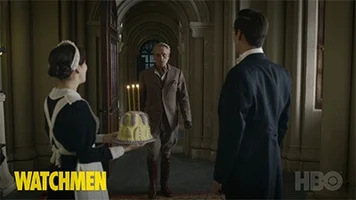
Again, it’s not entirely unbelievable that such a thoughtful
and reflective character would age into this silly old man ruled entirely by
ego-driven whims to which he appears completely oblivious. It’s just that the silly old man is far less
interesting than what he was originally (by contrast, Agent Blake is just as
much of a departure from the Laurie of the book, but the shift is in a complex
and interesting direction and I love it). This doesn’t represent a
misunderstanding of the character exactly, so much as a less than complete
understanding. The megalomania was
certainly there from the start, but all the nuance that made it interesting is
gone. The character has been flattened to
fit more comfortably on the “villain” side of the ledger, complete with a
quippy comeuppance that the original story so pointedly denied him.
Conversely, the moral ambivalence of Dr. Manhattan
has similarly been flattened out to place him more directly on the “hero” side. Key elements of the character are subtracted
in order to transform the obtuse metahuman deity of the book into the doomed
lover in a romantic tragedy that can’t help but feel a bit banal compared to
the complex metaphysical deconstruction of the nature of unlimited power and determinism
that preceded it. Making WATCHMEN into a
love story is in itself rather missing the point, I think. There is certainly a romance in the book,
but while Dan and Laurie’s connection made all the sense in the world given
their hang-ups and how the “heroes” are shown to only really relate to each
other, it was not exactly the most of swooning of emotional stuff. That the show asks us to invest in a romance
with Dr. Manhattan as its central emotional lynchpin is a complete nonstarter
for me.
| Now this. THIS makes sense to me. |
As discussed last week, the lovers’ whole cockamamie “tunnel of love” scheme is self-defeating and utterly unromantic, in a way that the show seems completely blind to. It has the seed of an actually romantic idea, that a relationship can be worth it even if it is doomed to end badly (see ETERNAL SUNSHINE OF THE SPOTLESS MIND for an actually romantic exploration of this idea), buried somewhere deep inside. But the Cal that Angela is married to is not the Jon she dated. To the extent that Jon has a personality at all, it is entirely defined by his otherworldy power, from the moment she meets him. This is not Pinocchio wishing to turn wooden limbs into flesh; omniscience and omnipotence are not such minor things that they can just be subtracted from a person’s identity and leave them remotely recognizable. The show seems to skirt this, and that so much of the original book is devoted to depicting exactly why Jon isn’t capable of the sort of all-encompassing emotion on which dramatic romance hinges, by positing that his detachment was a pre-existing personality trait that was incidental to, rather than entirely shaped by, becoming an inhuman existing outside of time. To be fair, Jon Osterman was a fairly passive character even when he was human, but I wonder what they thought any of the Manhattan material in the book (the gradual shedding of the wardrobe, the disintegrations of the relationships with Janey and Laurie, the, uh, explicit abandonment of earthly affairs in their entirety…) was about if not the impossibility of maintaining basic human connections when one has the power to live forever, walk on the sun and experience the universe on both the cosmic and subatomic scales continuously and simultaneously? And to whatever extent that impassivity is the core of “real” Jon’s character, it just makes a firebrand like Angela falling so madly in love with such a total milquetoast all the less explicable and compelling.
And look, I do sympathize with the difficulty here. Even more than Ozymandias, Dr. Manhattan seems
a character that becomes increasingly impossible to use in a coherent manner very
rapidly, and the comics may have used him to the full extent possible without
breaking the story entirely. Even it
had to introduce tachyon particles to reduce his omniscience fairly arbitrarily
toward the end! But I still found it disappointing
to see the final episode completely disregard his omniscience and focus
only on how he is the most physically powerful being in the world. As I mentioned before, at that point he could
have just been Superman sitting there in a kryptonite cage,
rather than the postmodern deconstruction of how Superman probably wouldn’t
care enough about humans to fight crime, and would alter the trajectory of
world history just by existing. In fact,
it would make more sense if the various factions were vying to steal Superman’s
strength rather than Manhattan’s essence, since Superman’s power is just raw
power.
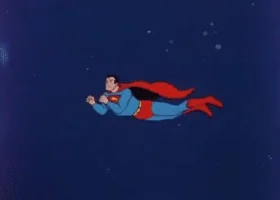
I mean look, I don’t want racists to obtain any godlike
powers, but there is reason to think that obtaining Manhattan’s power
specifically might be the surest way to purge a person of racism. The book is thoughtful but not exactly subtle
on this point; in one section Ozy is asked about Manhattan’s political leanings and responds “if there is one thing in the cosmos he is not capable of, it’s having a
political bias,” and then asking an interviewer “which do you prefer, red ants or
black ants?” When the bad guys’ evil
plan is to become Manhattan so they can stomp out all the black ants, that idea
seems like it needs to be revisited or addressed in some fashion or another.
But it’s only the unique power, not the (far more
interesting) unique perspective of Manhattan that is at play in the finale. The entire final sequence builds up to a
beautiful image and shot of the foot touching water that makes no sense as an
actual cliffhanger; if we are to seriously consider that she just sinks into
the pool, then it renders large portions of the setup of the egg and walking on
water flat out pointless. It’s not a “Lady or the Tiger” ending at that point,
it’s a “Lady or Blank Wall”, which is a nothing of a concept. But even if we make the obvious assumptions, it also doesn’t make
much sense. Apparently, transferring Manhattan’s essence only imbues his
limitless power, and not the character-defining timeless perspective? Or else any doubts about whether the transfer
worked would be immediately cleared up without the need for a test drive. Heck, it seems a lot easier to believe that,
if one were to become an atomic superman by eating an irradiated egg, there would
probably be some internal shift in physical sensation or perception to clue you
in without needing to throw yourself in the pool to confirm the change.
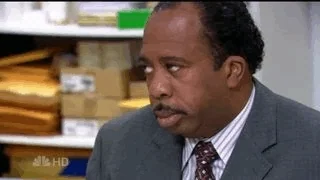 |
| But okay, maybe that's just me |
The main thing about the ending is that Angela attaining
godlike powers, without the godlike perspective, reduces a complex and
troubling take on godhood to something much more simplistic, and positive in only
the most shallow of ways. We seem meant
to cheer that Angela got this power up, since she is basically nice and we like
her, but if we are just supposed to be happy that someone with more wherewithal to push back against white supremacy has gained more strength to do so at that point, she may as well have inherited Spiderman’s powers at that point. I am genuinely confused by
the show presenting Angela becoming God as a happy ending, while Trieu becoming
God was the world-ending disaster the heroes had to avert. The show depicts one as villainous and one as
heroic, but Trieu’s stated goals upon attaining deification – denuclearization,
depollution, ending starvation - are altruistic. The show argues that she would be inevitably
corrupted by that power (which is a view I actually agree with, by the way), and
in fact she was already corrupted simply by the pursuit of it (which I don’t buy
as much, but it may be more of a semantic distinction than a substantive one).
What I do not understand is how Angela is supposed
to be less corruptible. Being a rather
irreligious person, I don’t want godlike powers gifted to anyone, really. But if I had to choose between granting it to
a self-made trillionaire with some serious daddy issues but generally
philanthropic aims, and a cop who demonstrated no abiding respect for civil
liberties when granted the simple buffer from consequence that wearing a mask
provides, who carries multiple generations of violent racial trauma and anger chemically
compacted into a single lifetime, who
thought that giving her lover a full lobotomy so she could be married to a
blank slate with a hot bod was a great, romantic idea? I’d actually pick the “villain” without
hesitation.
I guess we are supposed to take it as given that Angela is a
more worthy vessel because she did not actively seek to usurp these powers for
herself? This is a perspective I am familiar
with from the last few seasons of GAME OF THRONES leaning hard on it to justify
Jon Snow’s suitability to rule despite his intellectual limitations. And while I do think that there is a core of
truth to the axiom that those that seek positions of power are per se unsuited
to hold such positions, I also think that taking that perspective as gospel and the final word on the matter leads to a
facile and self-defeating conclusion that we should only elevate politicians
lacking in self-awareness and I don’t know, make Forrest Gump president or
something.
| "Please, kid, you wish you could have my simple ass back in the White House at this point." |
Furthermore, in recent years I have mostly considered that
issue of the pursuit of power being inherently corrupt in relation to smaller
scale, persistent stories of police brutality; how low hiring standards and
compensation levels are in turn overcompensated for with a public deference to
and lionizing of cops as heroes by default, in a way that seems like it could
have been designed specifically to weed out any applicants for whom the
opportunities for petty tyranny that come with a badge are not a major
draw. So I have an extra hard time
buying that a cop (much less a vigilante cop like Sister Night) is especially
worthy on the basis that they aren’t interested in wielding power capriciously.
And further-furthermore, it’s not like
she ate the egg by accident. She
knowingly did it to gain those powers, which pretty much nullifies any argument
that it’s okay for her to have it because she didn’t really want it.
Beyond that, I think the show fails in the end to raise the
question of whether a more active Manhattan would actually, as William suggests,
be a good thing? The most active thing Jon
ever did was to crush the Viet Cong, subjugating an entire culture(s) to a
thirty year reign of Richard Nixon. Or
maybe we are supposed to ask that kind of question, and I am just not giving the
show enough credit after disagreeing so thoroughly with some of its other decisions. I’m probably not giving it enough credit,
period. Ultimately, I do recommend the
show as a piece of exquisitely crafted, thoughtful sci-fi that functions well
enough on its own. If my endless bitching
about certain aspects paling in comparison to the original does anything, I
hope it highlights just what an impossible task it was to follow up that
original with anything that felt at all justified. That the show mostly succeeded at presenting a
worthy addition is an incredible feat, although I think there may be some sort
of lesson in how the best parts were in the early going, when it was defining
its own world and heroes that were descended, but distinct, from the original
text.
And with that, let's slide into bullet points
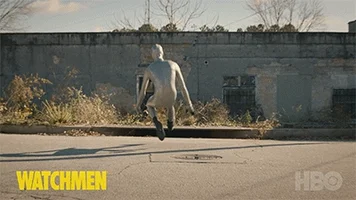
BULLET POINTS
- ACTUAL BULLET POINT: Ozymandias catching a bullet was a very cool moment in the book (particularly when he admits that he didn’t know if he could actually do it until he tried), but I wonder if it confused the heck out of people who hadn’t read it when the 80 year-old version did it on the show without context.
- One unexpected positive thing the finale did, that I would not have thought possible: justify Judd’s status as a deep, deep, deep cover racist. It never rang true to me that a sincere racist in his position of authority would find it necessary or possible to hide his bigotry so completely in service of stoking up a culture war, to such nebulous ends and which probably could have been escalated even more effectively with blatant racism. But when you realize that he knew Cal was Manhattan all along, then the actual ends Cyclops was working toward become so much more specific and extreme that it makes going to so much trouble to buddy up to Angela specifically seem more plausibly motivated.
- I do think back to the scene in the pilot, though, where he comforts the grieving wife of the officer who got shot. I think the show laid it on awful thick there, of him acting like a good dude when no one but “us” is watching. Angela should have been with him, I think, or at least outside, to seed the idea that he is performing to fool her and not just us in the audience.
- Really, I think this was a relic of the different show they were making for the first 4-5 episodes, one that was more focused on the police department and 7K, and where they were not entirely sure how villainous Judd was yet. Lindelof more or less admitted as much in one of the interviews he gave, that originally theirs’ was a plot to somehow use the Rorschach and police masks to further the Cyclops mind control plot, and this was eventually discarded when they realized that everyone going after Manhattan’s power streamlined things considerably. I actually wish we had gotten more of that original show, one where masks and policing were central issues, and Red Scare and Pirate Jenny and maybe even Panda got to be real characters.
- The streamlining does have the effect of making the climax become almost farcical in the domino effect of 7K sneaking up behind Dr. Manhattan to steal his powers, then Trieu coming in behind them to steal the power from them, then Veidt coming in to take her out, then Looking Glass sneaking up behind to take him out. It’s fairly riveting as it plays out, but by the end I start to get reminded of this Lonely Island bit.
- I think what the season ultimately needed more than anything was a Trieu/Veidt episode, between 7 and 8. We needed a lot more time with Veidt to see his frustration mount over decades of being stymied from further shepherding the world toward the utopia he only gradually realized that he really did expect. Then I might buy the The World’s Smartest Man being sufficiently broken to react so petulantly to his daughter, and leap at the offer to walk into a gilded cage that any C- philosophy student could have identified as more hell than heaven. And with Trieu, seeing her deduce her own insane origins and Manhattan’s location, diagnose the world’s problems, and essentially conquer it, had to be good for a few scenes worth of material.
- But I think I really wanted more insight into her mother, who apparently hated Ozymandias for…reasons? We know she is a Vietnamese refugee, but Ozy would have been about the only costumed hero who opposed the war, so I’m not sure how that would be the crux of it. I saw an interview with Lindelof that seemed to suggest she hated him for the squid attack, but she knocks herself up with his stolen sample the day before it happens, which is an odd way to punish him compared to, like, doing anything to expose or stop it.
